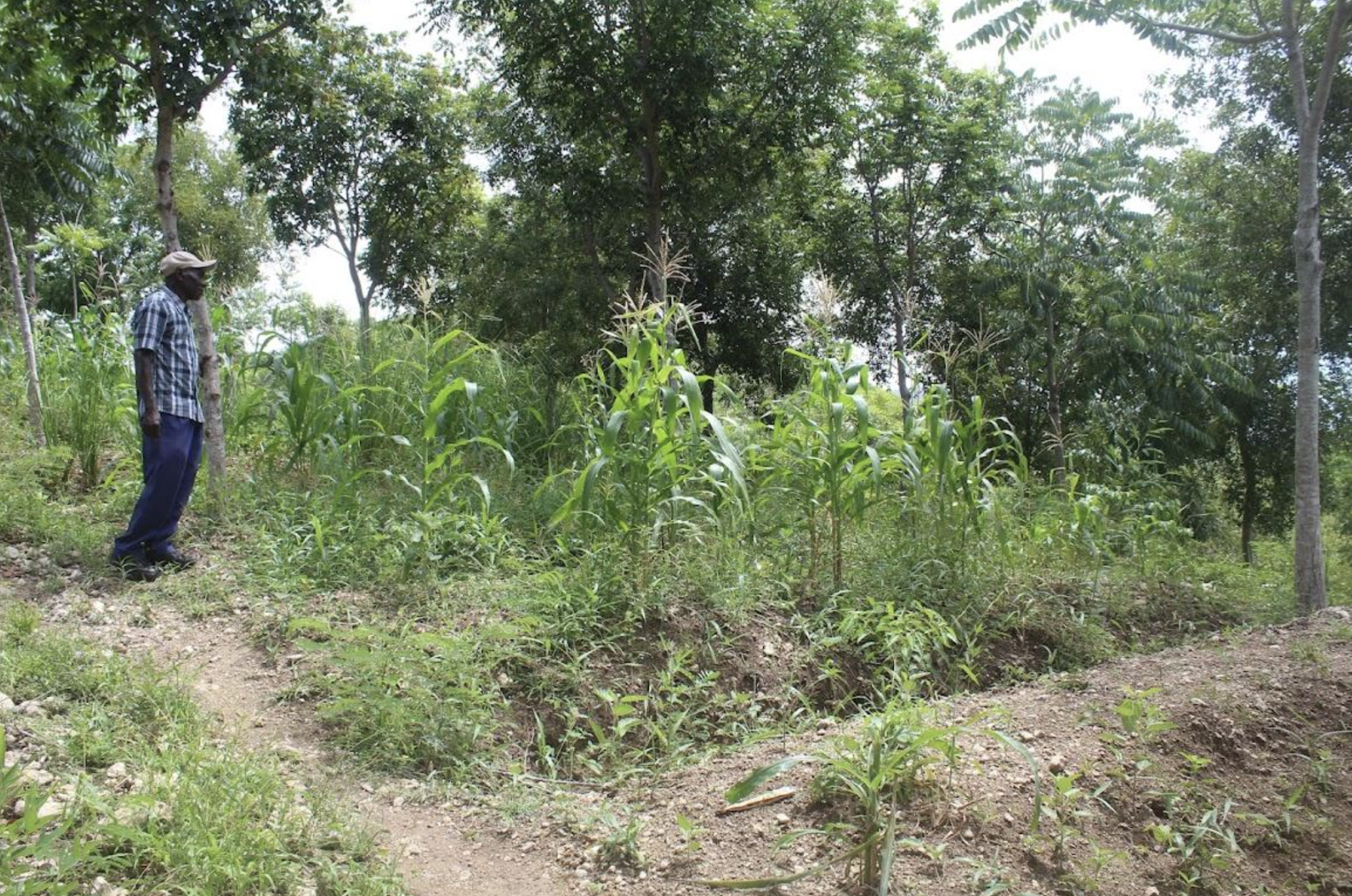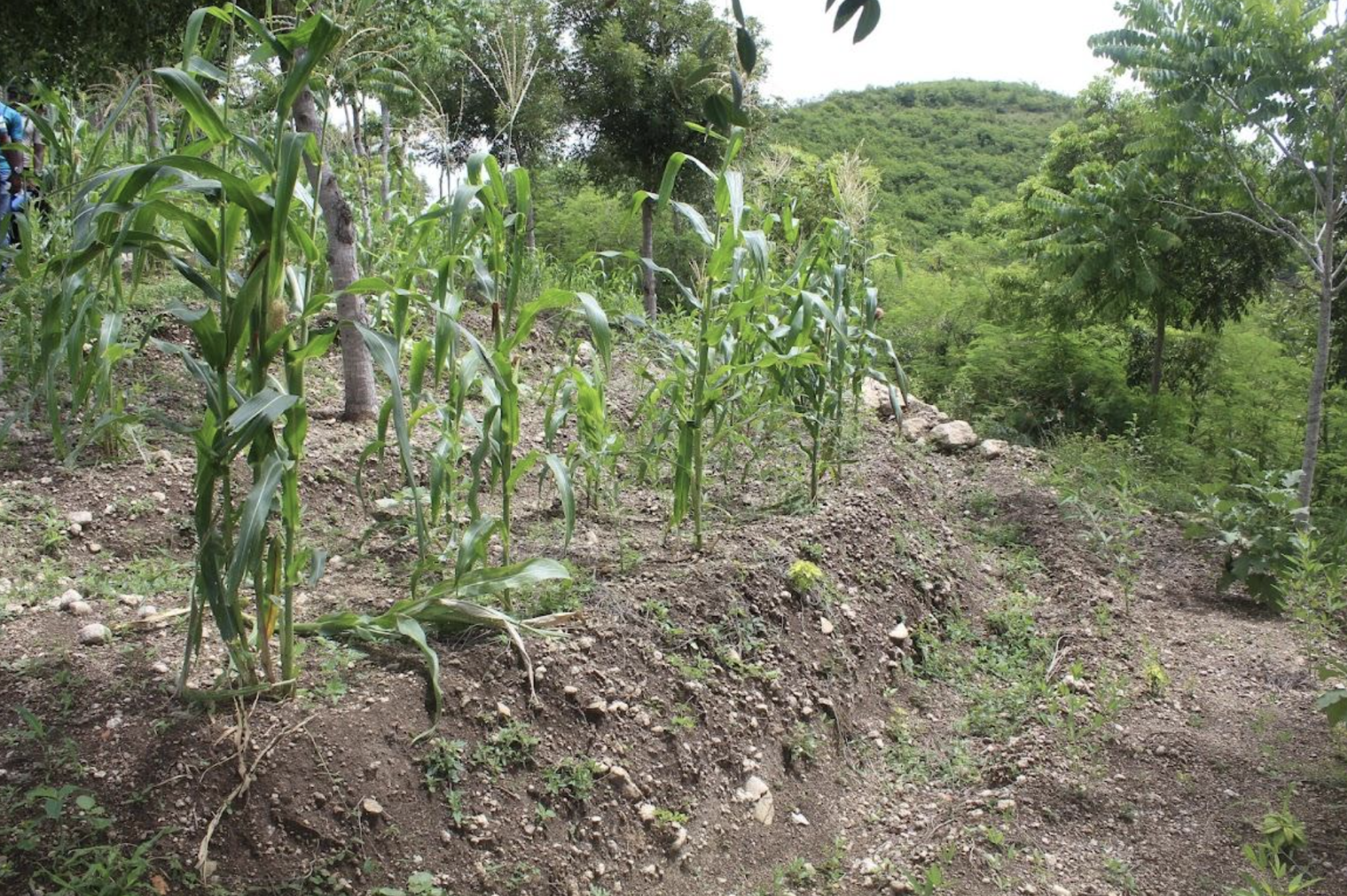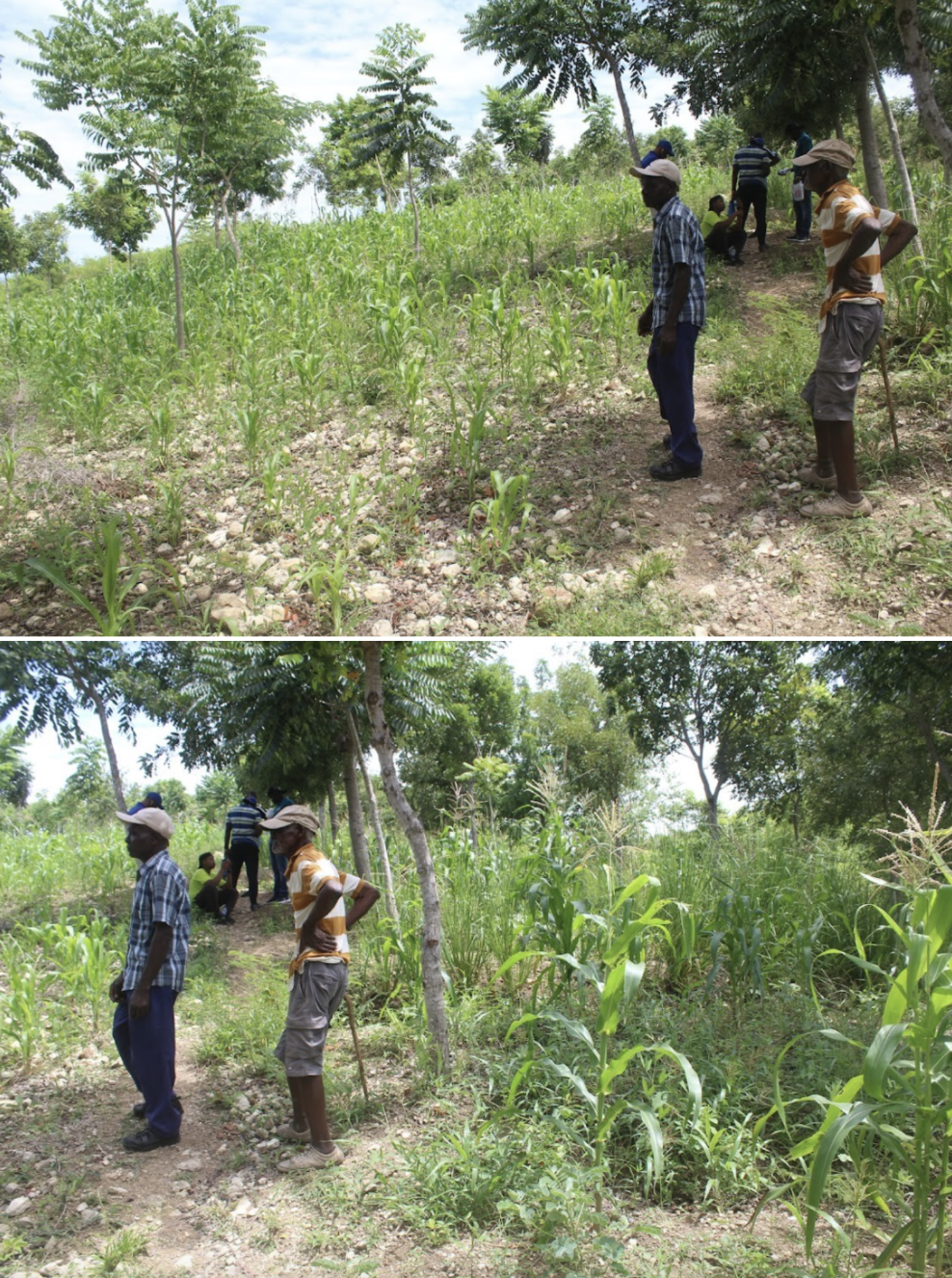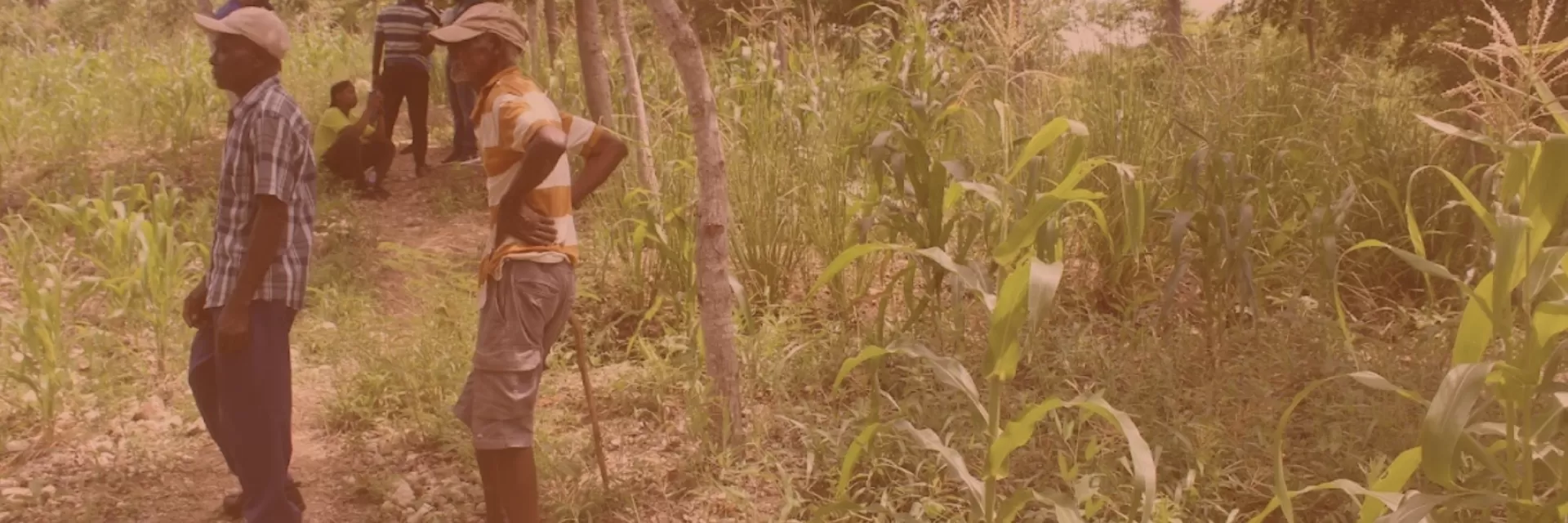By Jillian Foster

In July of 2021, the Quixote Center provided funds to the Jean Marie Vincent Center, located outside of Gros Morne, Haiti, to begin an experimental garden at Tèt Mòn, using the agricultural technique of deep-bed farming, called doub bechaj, or fouye de fwa, in Haitian Creole. The agronomists were familiar with this technique and were already teaching it to communities in the countryside. They began conducting formations in Gros Morne proper for deep-bed farming, using an already-existing garden as an example. Participants were interested in taking the technique to the mountain forest at Tèt Mòn to show how the technique could be applied in a more realistic location: on the mountain and away from the easily irrigated, flat land in the town center.
Deep-bed farming

There are many benefits to deep-bed farming. The process of preparing the earth includes digging deep in order to pierce the hard-packed dirt underneath the topsoil to allow for water and roots to more deeply penetrate into the earth. This allows crop roots to extend further to find the water that seeps deeper into the soil, and is therefore preserved even in the dry season.
Canals following the contours of the land also help to capture water so that it trickles deeper into the earth and prevents the erosion of topsoil as run-off. The canals also double as walkways for workers, to prevent them from wading into the crop beds and tamping down the soil. Planting vertiver grass along the bank of a few of the canals and around the garden prevents erosion, and vertiver trimmings are also used as compost and placed in the crop beds.
Deep-bed farming is an antidote to the extremes of drought and storms which are indicators of climate change in Haiti.

Planting in 2022
With a few more planting techniques mixed in, such as mixing crops, deep-bed farming increases the harvest with larger crop yields and larger crops in general. In April 2022, the community planted corn on the mountain garden in the deep-bed farming section as well as the unworked sections of the garden. The differences over three months of growth were quite striking.
Formations, country insecurity, and future plans
When this work began in 2021, there was a period of rising gas prices and insecurity in Haiti, limiting the number of formations on deep bed farming. The agronomists took a brief pause and then continued to teach this technique out in the communities. In September of 2022, another rise in gas prices and the following protests made continuing difficult. While the gas prices stabilized once again for a time, the gang activity has increased tremendously country-wide, with gangs taking control of many main roads and threatening, killing and kidnapping people.
While Gros-Morne is relatively safe from direct gang activity, the area of Grepen, the location of the JMV Center, is a little outside the main town. The local priests have received threats and there are even recent rumors (April 2023) of a gang wanting to take over theTèt Mòn forest. Due to issues of security, it has been a while since we visited the garden. We are holding tight for the moment, but we will return when it is safe, knowing that this work is part of establishing a bright future for Haiti.


